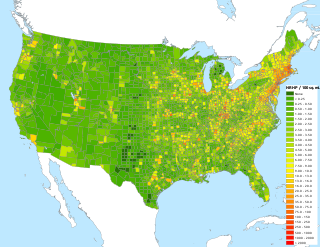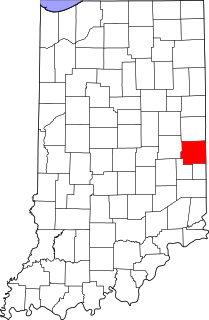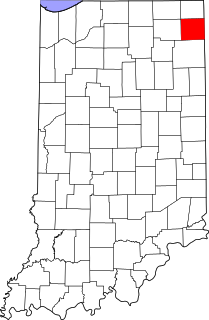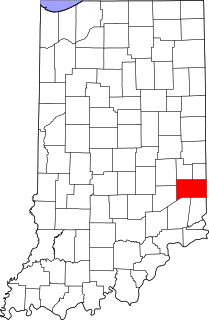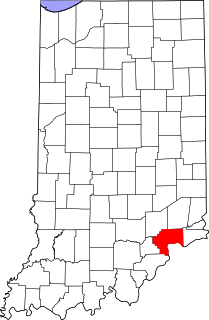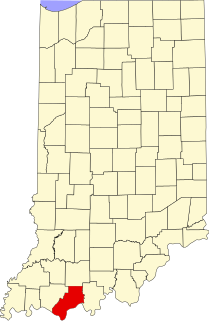This article needs additional citations for verification .(September 2010) (Learn how and when to remove this template message) |
| Illinois-Indiana State Line Boundary Marker | |
|---|---|
Illinois-Indiana State Line Boundary Marker | |
| Location | Chicago, Illinois/Hammond, Indiana, United States |
| Coordinates | 41°42′28″N87°31′28″W / 41.707842°N 87.524471°W Coordinates: 41°42′28″N87°31′28″W / 41.707842°N 87.524471°W |
| Built | 1838 |
| Designated | September 4, 2002 |
The Illinois–Indiana State Line Boundary Marker is a sandstone boundary marker obelisk located near the end of Chicago's Avenue G, just west of the State Line Generating Plant of Hammond, Indiana. Since 1988 it has been 159.359 miles (256.463 km) north of the Wabash River.

Sandstone is a clastic sedimentary rock composed mainly of sand-sized mineral particles or rock fragments.

A boundary marker, border marker, boundary stone, or border stone is a robust physical marker that identifies the start of a land boundary or the change in a boundary, especially a change in direction of a boundary. There are several other types of named border markers, known as pillars, obelisks, and corners. Border markers can also be markers through which a border line runs in a straight line to determine that border. They can also be the markers from which a border marker has been fixed.
An obelisk is a tall, four-sided, narrow tapering monument which ends in a pyramid-like shape or pyramidion at the top. These were originally called tekhenu by their builders, the Ancient Egyptians. The Greeks who saw them used the Greek term 'obeliskos' to describe them, and this word passed into Latin and ultimately English. Ancient obelisks are monolithic; that is, they consist of a single stone. Most modern obelisks are made of several stones; some, like the Washington Monument, are buildings.
The obelisk was constructed by the Office of the United States Surveyor General ca. 1838. In 1988, the marker was relocated 191.09 feet (58.24 m) north of its original location, but the structure continues to straddle the state line between Illinois and Indiana. As one of the earliest structures still standing in Chicago, the marker earned Chicago Landmark status on September 4, 2002. [1]
The Surveyor General is an official responsible for government surveying in a specific country or territory. Historically this would often have been a military appointment, but it is now more likely to be a civilian post.



